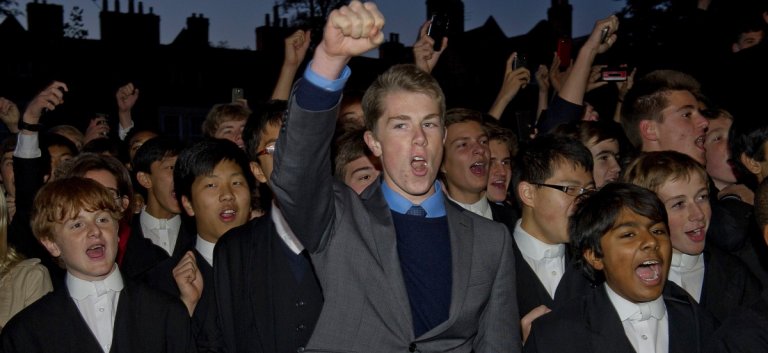
Britain’s reputation as a global powerhouse may be over in many sectors. But a recent survey has found that when it comes to education, the global rich still believes in the quality of its schools and universities.
“Quality of education” and “prestige of school/university name” are the two greatest motivations for high net worth families sending their children to school and university in the UK, according to the survey by private tutoring company Keystone Tutors and executive search and advisory company Wild Search.
It’s a reputation that prevails despite the political turmoil engulfing the country since it voted to leave the European Union in June 2016. The majority of high net worth families would still consider sending their children to study in the UK, with 61 percent of respondents claiming their clients’ appetites for UK education have not changed in the past 12-months, whilst 24 percent feel it has increased, and only 16 percent feel it has decreased.
Brexit has “no impact” on the attractiveness of the UK as a study destination for the vast majority of the respondents.
“UK independent schools have long projected an image of excellence, continuity and reliability in this uncertain world,” says Will Orr-Ewing, founder and director of Keystone.
“As this report makes clear, it is an image that continues to resonate with families from all over the world. Our schools are not immune to global trends but we hope that their ambition, their dynamism and their independence means that they continue to capitalise on these trends rather than succumb to them.”

Eton College, alma mater of Prince Harry and Prince William, is one of the most elite independent boarding schools in the country and the world. Source: AFP/Kirsty Wigglesworth
The survey – based on nearly 150 responses from private client advisers, education consultants, teachers and those working in school admissions – also found that high net worth families want to facilitate their children’s chances of getting into Oxbridge or other top UK universities, as well as security and quality of culture and lifestyle, among other important factors for them sending their children to a UK private school.
“The UK offers all of the points parents are looking for: reputation, location, top-quality
education and security,” said John Southworth, Principal at fifth- and sixth-form college MPW London.
Prestigious senior school = prestigious university
The “ultimate goal” for wealthy Chinese families is to get their child into the world’s greatest universities, according to Mark Cottenham, Shanghai-based Director of VCP Advisors and former General Manager at Times Education.
And the reigning brands in education – Oxford, Cambridge, Eton, Harrow and Winchester – are located in the UK, not China.
Getting a foot into these institutions’ hallowed halls begins with attending the most elite private schools the UK has to offer, a task easily afforded by the rich in China – the nation predicted to have the greatest purchasing power globally, surpassing the US, by 2030. The scramble to attend UK international schools, even their branch campuses not located in the UK, appears to have led to these high net worth families to pack their offspring to the UK at an increasingly younger age.
“The main attraction is university placement. Attending a prestigious senior school is the logical step to gaining a place at a prestigious university,” says Andrew Shedden, Registrar at Winchester College.
China’s rigid education system fuels this appetite. The ultra-competitiveness of exams, rote teaching methods and turnover of teachers at many schools in China bolster the appeal for parents looking 5to send their children to one of these UK schools.
The prospect of earning more than just an education is tempting, educators say and for a group of people who can afford it (high net worth is typically defined as individuals with assets over US$1 million), why not?
Warren Johnson, Chief Academic Officer of HD Schools, China, believes “many Chinese
parents are drawn to the traditional broader British experience: they like the grounds, facilities and extra-curricular provision on offer.”
This emphasis on the extra-curricular is much harder to find in many top schools around the world. Felix Hamilton notes that, at least in China, it’s often the parents who organise the add-ons, perhaps explaining why they are so attracted to the ‘all in’ offer of UK schools.
Liked this? Then you’ll love…
Charted: The most expensive US region for international students
More international schools seek accreditation to stay competitive – report







